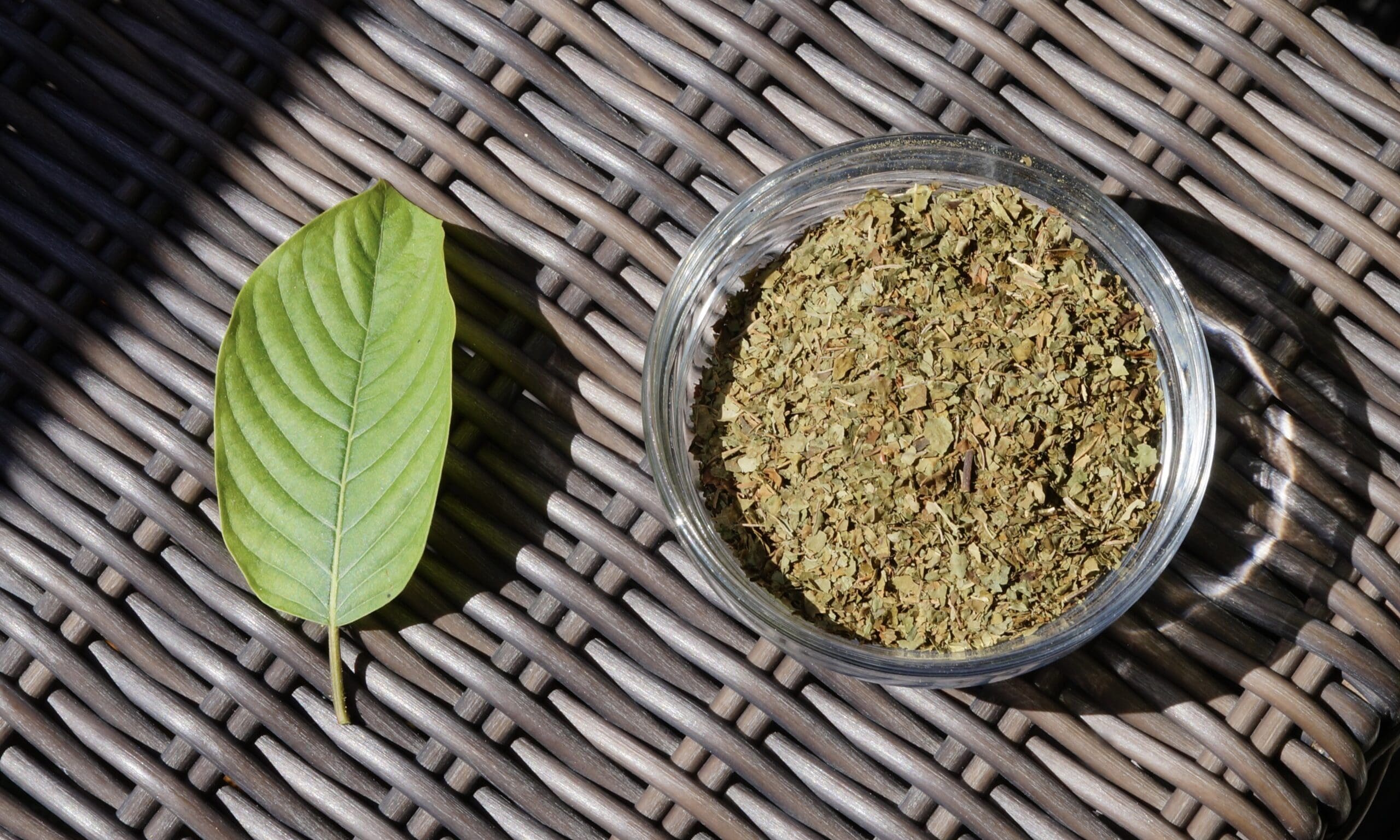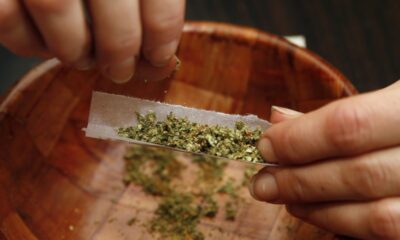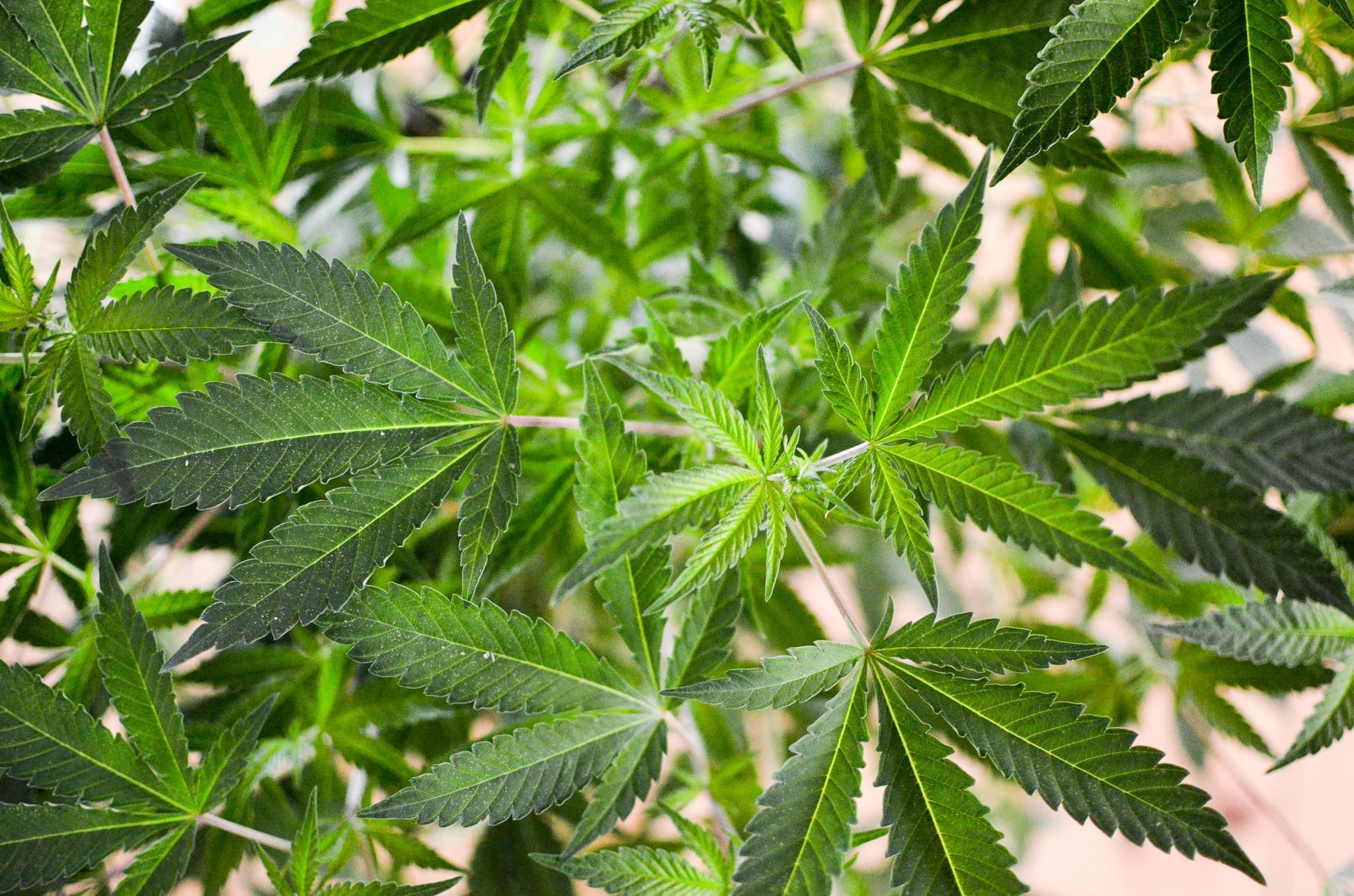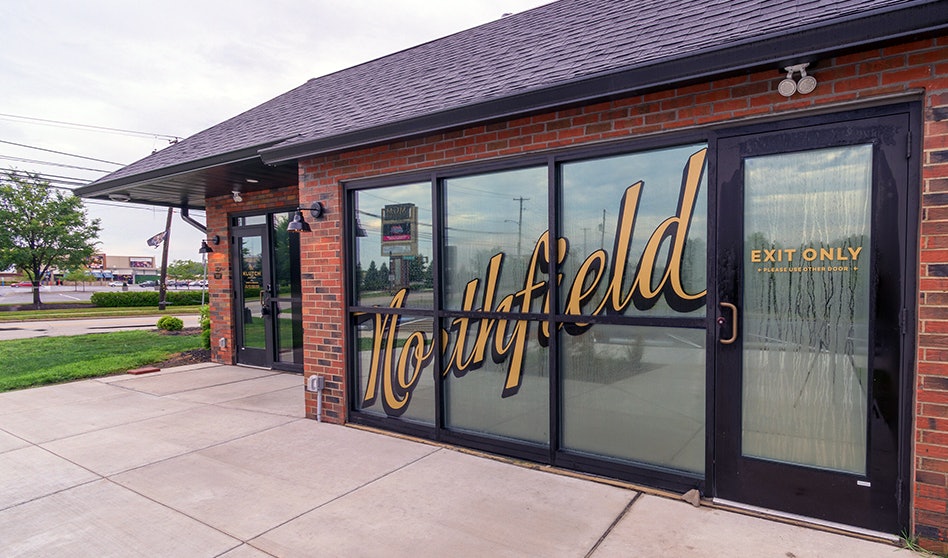featured
RFK Jr. Takes A Page From The Prohibitionist Playbook By Endorsing Criminalization Of Kratom Compound 7-OH (Op-Ed)
Published
1 day agoon

“Watching federal agencies repeat the same failed approach with 7-OH is disappointing, but unfortunately not surprising.”
By Caro Freinberg and Soren Shade, Top Tree Herbs
At a recent press conference, secretary of the U.S. Department of Health and Human Services (HHS) Robert F. Kennedy Jr. endorsed the Food and Drug Administration’s (FDA) recommendation to classify 7-hydroxymitragynine (7-OH) as a federally controlled substance. Despite political promises to forge a different path, the same tired Drug War tactics were on full display.
What Is 7-Hydroxymitragynine?
7-OH is one of many naturally occurring alkaloids found in the leaves of kratom trees. These leaves have been used for centuries as an herbal remedy. They contain a complex blend of alkaloids that interact with opioid, serotonin and alpha-adrenergic receptors. Around the world, people use kratom to help manage discomfort, enhance focus or relax.
In raw, dried kratom leaf, 7-OH exists only in trace amounts (typically less than 0.1 mg per gram of leaf). It’s formed when a more abundant alkaloid, mitragynine, degrades in the leaves.
But in recent years, manufacturers have begun converting large amounts of mitragynine into 7-OH to create extremely potent products. Some capsules and tablets contain 15–50 mg of 7-OH, hundreds of times more than what you’d find in a standard 2–5 gram serving of kratom leaves. 7-OH products produce stronger pain-killing effects than leaf kratom or kratom extract.
Yet potency, on its own, isn’t a problem. The problem is how these products are being manufactured, marketed and sold—with little to no safety testing, evidence for medical claims or manufacturing oversight.
7-OH manufacturing practices are often substandard, resulting in tablets that contain a range of unknown byproducts and impurities with substantial differences between batches. Oftentimes, manufacturers label them with kratom leaf imagery and terminology (such as “advanced kratom alkaloids,” “superior kratom alkaloids,” “premium kratom alkaloids” or “organic kratom extract full-spectrum 7-hydroxymitragynine”) with the clear intention to mislead consumers into thinking isolated 7-OH is similar to kratom.
Few come with clear dosage instructions, warnings about potential interactions or disclosures about dependency risks. And most are sold at gas stations and smoke shops, where employees typically have no education on the products or their potential risks.
What the Media and Government Get Wrong About 7OH
With growing popularity has come growing scrutiny. But government agencies and major media outlets aren’t focusing on the issues laid out above. Instead, the FDA, the Drug Enforcement Administration (DEA) and HHS are leaning on a familiar narrative predicated on fear: opioid = bad, synthetic = dangerous and availability = addiction.
None of these equations hold up under scrutiny. First, opioids have saved far more lives than they’ve taken—through pain management, trauma care and palliative medicine. The vast majority of opioid-related deaths involve combinations with other sedatives, not opioids alone.
Second, the natural vs. synthetic distinction tells us nothing meaningful about a drug’s safety. Consider nicotine (natural, widely available, highly addictive) versus naloxone (synthetic, life-saving, non-addictive).
And finally, while availability may shape patterns of use, it’s not what drives addiction. We don’t attribute alcoholism to the mere existence of alcohol—especially when younger generations are drinking less despite liquor stores on every corner. Nor do we assume that junk food availability is the sole cause of disordered eating. Addiction is about context, not presence.
So far, there is little evidence to support the HHS’s narrative that 7-OH is ruining lives. Many people do report issues with dependency and withdrawal, as well as financial issues from spending a lot of money on 7-OH products. But reports of severe 7-OH-related harms (like overdoses) are sparse. There’s currently no public record of a single verified death caused solely by 7-OH. At the same time, many individuals report success using 7-OH to manage conditions that they haven’t found any other viable treatment for.
Despite the lack of research into 7-OH and evidence of significant harm (and the nascent state of medical research), the FDA has formally recommended that 7-OH be added to Schedule I of the Controlled Substances Act. If approved, possession or production of 7-OH above a certain concentration would be a felony offense.
But placing a compound in Schedule I has historically done nothing to eliminate risk. In fact, we’ve often seen this categorization increase harm by pushing substances into the shadows, where they become harder to monitor, regulate, or use safely.
What Prohibition Actually Does
Once banned, 7-OH will almost undoubtedly continue to be sold, but in the illicit market instead of the gray market. History makes this clear.
Illicit market substances are typically produced with even less quality control and less labeling. Alcohol prohibition in the early 20th century didn’t keep people from drinking; it led to bootlegging empires and deaths from methanol-tainted moonshine. Criminalizing cannabis didn’t stop its use; it fueled mass incarceration and made unregulated cannabis more hazardous.
Beyond that, every time one compound is banned, a dozen new analogs take its place. The bans on “spice” and “bath salts” in the last two decades led to waves of even more potent analogs hitting the unregulated market, making safe use even more challenging.
If 7-OH is outlawed, alternative kratom-derived substances and other novel compounds will very likely take its place. All of them will have even less evidence for safety than 7-OH currently does.
When one drug is criminalized and its availability is reduced, substance use and misuse do not end—because availability is not the driver of substance use issues.
The Real Drivers of Drug Use and Misuse
For the sake of argument, let’s assume the government is genuinely focused on helping drug users who meet the criteria for substance use disorder, a group that actually represents a minority of all users.
Prohibition doesn’t serve them, because the real drivers of addiction aren’t purely chemical; they’re rooted in socioeconomic conditions. People turn to drugs, legal or not, to cope with the everyday pressures and deeper pains of modern life. Our society is saturated with suffering: low-wage or purposeless work, housing instability, social disconnection, inaccessible healthcare, chronic anxiety, failing education systems…
These socioeconomic issues are the problem, and drug use is a common symptom.
We use coffee for burnout, wine for social anxiety, benzos and cannabis for sleepless nights and 7-OH for pain or relaxation.
7-OH is just one more option on a long list of temporary coping mechanisms people reach for when other systems have failed them. And targeting drug use—a mere symptom of that failure—won’t fix the problem.
The Prohibitionist Status Quo
Drug overdose deaths are a tragedy. But they’re not solely a pharmacological phenomenon, a moral failing or a consequence of “availability.” They’re the result of policy failure.
When people are forced to hide their drug use out of fear of prosecution, they lose access to harm reduction information and community support.
If, as all the evidence suggests, prohibition only amplifies drug-related harms, then why is it still the default policy approach?
Part of the answer lies in how prohibition has always served bureaucratic self-preservation. In the early 1930s, as alcohol prohibition was unraveling, federal agents and administrators needed a new justification for their roles. Harry Anslinger, the newly appointed head of the Federal Bureau of Narcotics, seized the opportunity. He helped manufacture a national panic around cannabis, exploiting racist fears, media sensationalism and support from industrial players threatened by hemp.
The “Reefer Madness” campaign fueled the criminalization of marijuana and ensured that the machinery of prohibition stayed in motion. The Bureau of Prohibition simply morphed into the Bureau of Narcotics—an early version of today’s DEA.
Today, prohibition isn’t just policy—it’s profit. It props up a multi-billion dollar ecosystem of law enforcement agencies, private prisons, court systems, rehabs, pharmaceutical giants and, of course, illicit drug markets. With so many stakeholders invested in maintaining the status quo, meaningful reform isn’t just resisted—it’s actively undermined.
Better Alternatives to Prohibition
Instead of criminalizing 7-OH, there are many other steps that the federal government can take to address the current issues with the 7-OH market.
The federal government should implement sensible regulations that ensure these products are clinically tested for safety, properly manufactured, sold only to adults, clearly labeled with accurate usage guidelines and warnings and distributed through well-informed vendors.
More broadly, we need to reframe how society approaches drug use.
Like driving or drinking alcohol, it should be treated as an adult activity that carries both risks and responsibilities. When misuse occurs, it should be addressed as a health issue—not a criminal one.
Countries like Switzerland have shown that heroin-assisted treatment can dramatically reduce overdose deaths and improve quality of life. Ultimately, we must stop pathologizing all drug use, broaden our definition of self-care and recognize that using drugs can, in many cases, be part of normal human behavior.
Same Playbook, Same Results
Watching federal agencies repeat the same failed approach with 7-OH is disappointing, but unfortunately not surprising.
We often hear that insanity is doing the same thing over and over and expecting a different result. If lawmakers keep passing prohibitionist drug laws while hoping to reduce drug-related harms, what does that say about their intentions? Are they unaware of prohibition’s history? Or are they willfully choosing punishment over progress, neglecting public health to preserve a broken status quo?
Soren Shade is the founder of Top Tree Herbs, a Colorado-based kratom tea bag company focused on reducing the stigma surrounding kratom. Caro Freinberg is Top Tree Herbs’ co-owner and graphic designer.
Photo courtesy of Caro Freinberg.

Author: mscannabiz.com
MScannaBIZ for all you Mississippi Cannabis News and Information.
You may like
-


Two Oakland cannabis dispensaries targeted again by ram-raiding burglars
-


Trump on changes to marijuana policy: 'We're looking at it'
-


Bill Maher Takes Credit for Possibility Trump Might Reshedule Marijuana
-


Social cannabis use rules will be published Friday
-


Over 2,000 plants uncovered at marijuana grow-op in Brantford – CP24
-


Mass. residents sound off on social marijuana use as rules are finalized – NBC Boston
featured
Newly Posted Texas Medical Marijuana Rules Will Let Doctors Recommend New Qualifying Conditions For Patients
Published
11 hours agoon
August 15, 2025
Texas officials are taking another step toward implementing a law to significantly expand the state’s medical marijuana program—posting a draft of proposed rules to let physicians recommend new qualifying conditions for cannabis and create standards for allowable inhalation devices.
The state Health and Human Services Commission is set to formally file the proposed rules next week, and they’ll subsequently be published in the Texas Register, opening up a 31-day public comment period.
This comes about a week after the the Department of Public Safety (DPS) previewed a separate set of rules to increase the number of licensed dispensaries under recently passed legislation.
To comply with the medical marijuana expansion bill that Gov. Greg Abbott (R) signed into law in June, DPS will be formally proposing a future licensing application process, security standards for satellite locations and license revocation parameters.
Meanwhile, the new memo published ahead of a Health and Human Services Commission Executive Council meeting scheduled for Thursday, August 21 outlines additional steps that are being taken.
Specifically, the department is proposing rules that “explain how physicians can request to add medical conditions to the list, set standards for pulmonary inhalation medical devices prescribed under the program, and establish a timeline for reviewing and approving such devices.”
Under the rule, doctors would submit recommended medical cannabis qualifying conditions to the Department of State Health Services (DSHS), which would then forward the recommendation to DPS. That department would be tasked with submitting the request to lawmakers for consideration in the next legislative session.
The rules must be finalized by October 1, 2025.
In addition to increasing the number of dispensaries, revising physician recommendation policies and setting standards for vaping devises, the law signed by the governor also expands the state’s list of medical cannabis qualifying conditions to include chronic pain, traumatic brain injury (TBI), Crohn’s disease and other inflammatory bowel diseases, while also allowing end-of-life patients in palliative or hospice care to use marijuana.
That policy change will be automatically adopted via the enacted statute when the law takes effect on September 1, so it will not require further rulemaking.
DPS, for its part, will ultimately be issuing 12 new licenses for dispensaries across the state. Currently there are only three. The additional licensees will go through a competitive process, with officials prioritizing Texas’s public health regions to optimize access.
The first round of licenses will be awarded to nine of 139 applicants who submitted their forms during an earlier application window in 2023. DPS will select those nine licensees on December 1. The 2023 applicants that didn’t receive a license, as well as any new prospective licensees, will have another shot at getting their license during a second round where awardees will be announced on April 1, 2026.
The 2023 group can still revise their applications up until September 15. New would-be dispensary owners have until that date to submit their applications as well.
The Department of Public Safety has separately previewed future rulemaking to comply with the medical marijuana expansion law.
That includes proposals to establish “security requirements for dispensing organization satellite locations if approved by the department,” creating rules to revoke licenses for dispensaries that fail to dispense cannabis within two years of a license issuance and setting a timeline for “reviewing and taking action on dispensing organization licenses.”
Meanwhile, Texas lawmakers took up a bill on Wednesday that would ban consumable hemp products containing THC. But despite the committee hearing being held, the legislation isn’t expected to advance during an ongoing special session as Democratic state lawmakers continue to deny the House a quorum to pass any measures amid a conflict over proposed redistricting.
The House bill, a companion to an identical Senate-passed hemp proposal, was discussed during a lengthy meeting of the House Public Health Committee, which is able to conduct business despite the broader lack of quorum in the chamber. While the governor has threatened prosecution or dismissal of absent Democratic members, the walkout hasn’t shown signs of relenting.
Time is running short in the special session the governor convened to address a series of outstanding issues, including legislation related to hemp cannabinoid products. Abbott vetoed an earlier version of the controversial ban that passed during this year’s regular session, and he recently outlined what he’d like to see in a revised version of the bill.
The governor and legislative leaders have since affirmed that, if Democrats members don’t show up and establish a quorum by Friday, they will end the current special session and start a new one. Under the state constitution, special sessions cannot last longer than 30 days, but there is no limit to how many can be called.
At a press conference last month, a group of Democratic state senators introduced two new cannabis-related bills, including one that would regulate the hemp market, allowing adults 21 and older to purchase hemp products containing no more than 5 mg of THC per serving.
A second new bill would effectively legalize cannabis for adult use by removing criminal penalties for possession of up to two ounces of marijuana on a person and up to 10 ounces in a single household if it’s secure and out of sight. Cultivation of up to six plants, only half of which could be mature, would also be legalized.
The governor, who during the state’s regular legislative session this year vetoed a similar hemp product ban, SB 3, has also backed the idea of limiting THC potency and prohibiting sales to minors rather than outlawing products entirely.
Under the current Senate-passed proposal, consumable hemp products with any amount of THC—or any other cannabinoid besides CBD and CBG—would be illegal. Even mere possession would be punishable as a Class B misdemeanor, carrying up to 180 days in jail and a $2,000 fine.
Some advocates are hopeful that either SB 5 or its House counterpart could see revisions as they make their way through the legislative process—either to affirmatively regulate the hemp market or to at least ease some of the criminal penalties on individuals found in possession of the affected products.
—
Marijuana Moment is tracking hundreds of cannabis, psychedelics and drug policy bills in state legislatures and Congress this year. Patreon supporters pledging at least $25/month get access to our interactive maps, charts and hearing calendar so they don’t miss any developments.![]()
Learn more about our marijuana bill tracker and become a supporter on Patreon to get access.
—
Separately, Rep. Nicole Collier (D) introduced a one-page bill, HB 42, designed to protect consumers in the state from criminal charges if what they believed was a legal hemp product turned out to contain excessive amounts of THC, making it illegal marijuana. It would prevent the criminalization of someone found in possession of a product that’s labeled as hemp but is determined to contain “a controlled substance or marihuana.”
In order for the person to obtain the legal protection, the product would need to have been purchased “from a retailer the person reasonably believed was authorized to sell a consumable hemp product.”
Another bill—HB 195, introduced by Rep. Jessica González (D)—would legalize marijuana for people 21 and older, allowing possession of up to 2.5 ounces of cannabis, with no more than 15 grams of that amount being in concentrated form.
Yet another proposal would order state officials to conduct a study on testing for THC intoxication.
As for what Texans themselves want to see from their representatives, proponents of reining in the largely unregulated intoxicating hemp industry in Texas shared new polling data indicating that majorities of respondents from both major political parties support outlawing synthetic cannabinoids, such as delta-8 THC.
The survey also found that respondents would rather obtain therapeutic cannabis products through a state-licensed medical marijuana program than from a “smoke shop selling unregulated and untested hemp.”
Ahead of the governor’s veto in June of SB 3—the earlier hemp product ban—advocates and stakeholders had delivered more than 100,000 petition signatures asking Abbott to reject the measure. Critics argued that the industry—which employs an estimated 53,000 people—would be decimated if the measure became law.
Photo courtesy of Philip Steffan.

Author: mscannabiz.com
MScannaBIZ for all you Mississippi Cannabis News and Information.

The age old search for youth may have a new direction – marijuana
The fight to stay young and healthy has been going on for hundreds if not thousands of years. Billions have been spent, but now there is a new twist – can cannabis help make the brain younger. In the age of biohacking and wellness trends, millennials juggling Zoom fatigue and daily stress are asking: can cannabis do more than chill us out—might it actually make our brains feel younger?
RELATED: Marijuana Might Be A Better Hurricane Party Guest
Preclinical research has shown striking results: in older mice, low-dose THC boosted synaptic connectivity and improved memory, seemingly reversing age-linked cognitive decline.
On the human front, a controlled trial at Johns Hopkins and Tufts used dronabinol—a synthetic THC—in 75 Alzheimer’s patients experiencing agitation. Over three weeks, a twice-daily 5 mg dose reduced agitation by about 30% and was better tolerated than traditional antipsychotics.

However, when it comes to cognitive effects in healthy or aging adults, the data is more mixed. A JAMA Network Open study tracked 57 new medical cannabis users for a year using fMRI scans. The result? No meaningful changes in working memory, reward processing, or inhibitory control—good news for safety-minded users.
But another large-scale imaging study found among young adults (ages 22–36), heavy cannabis users showed reduced brain activation during working memory tasks—63% in lifetime users and 68% in recent users.
Long-term studies add nuance: a Danish cohort study followed over 5,000 men from young adulthood to their 60s and found no greater cognitive decline among cannabis users—in fact, users showed slightly less IQ decline than non-users
RELATED: Science Says Medical Marijuana Improves Quality Of Life
What Does It All Mean for the average person?
-
Dronabinol may soothe brain agitation in Alzheimer’s patients—a meaningful bump in quality of life for patients and caregivers Johns Hopkins Medicine.
-
Medical cannabis over a year doesn’t appear to disrupt key cognitive functions in healthy adults, based on fMRI measures.
-
Heavy recreational use, especially among the younger crowd, may impair working memory and brain activity in imaging studies
-
Long-term cognitive aging trends may not suffer—and could potentially fare better—in users, according to a large Danish study.
While animal studies highlight a fascinating possibility—THC under tightly controlled, low doses might rewind aspects of brain aging— human trials are still in early stages. For Alzheimer’s-related agitation, synthetic THC shows real promise. For healthy adults, cannabis appears neurologically safe over a year. Yet, heavy habitual use—particularly among younger individuals—may carry cognitive costs. Conversely, long-term cognitive aging does not seem accelerated among users—and might even be subtly mitigated.

Author: mscannabiz.com
MScannaBIZ for all you Mississippi Cannabis News and Information.
featured
Klutch Cannabis Opening 5th Ohio Dispensary in Northfield
Published
13 hours agoon
August 15, 2025
[PRESS RELEASE] – NORTHFIELD VILLAGE, Ohio, Aug. 15, 2025 – Klutch Cannabis, one of Ohio’s leading vertically integrated cannabis companies, announced the grand opening of its newest dispensary, located at 10650 Northfield Road in Northfield Village, Ohio. Doors will officially open at 10 a.m. Aug. 21, 2025.
The new location marks Klutch’s first dispensary in Summit County, where the company is headquartered. Conveniently situated directly across the street from the MGM Northfield Park Casino and Racetrack, the dispensary is easily accessible from Route 8 and I-271, finally bringing much-needed access to medical cannabis patients and adult-use consumers in Northern Summit County communities, including Northfield Village, Macedonia, Northfield Center Township, Twinsburg, Hudson, Sagamore Hills, Boston Township, Richfield Township, Bath Township, and more.
The expansion further solidifies Klutch’s retail footprint in Northeast Ohio and represents an important milestone as the company begins delivering its renowned top-shelf products on its home turf. Offerings will include exclusive drops and limited releases along with customer favorites from the company’s Klutch Cannabis and Habitat by Klutch lines, its Ohio-exclusive brand partners, and other Ohio cannabis companies. The Northfield dispensary will also feature Klutch’s signature aesthetic and exceptional customer service, as well as a convenient drive-thru pickup window for pre-orders.
Hours of operation for the new Northfield Village location will be:
- 10 a.m. to 10:45 p.m. Thursday through Saturday
- 10 a.m. to 10 p.m. Sunday through Wednesday
“We’re incredibly excited to expand Klutch Cannabis’s retail footprint to Summit County,” Klutch founder and CEO Adam Thomarios said. “This location has been years in the making and will finally provide patients and adult-use customers in Northern Summit County with access to the quality, care, and consistency that Klutch is known for. Our thanks go out, especially, to the community, administration, and officials in Northfield Village for being such great partners from the start. The Village is a great place to do business, and we can’t wait to start making a positive impact in the community.”
For more information about Klutch Cannabis, its dispensaries, and its award-winning products, visit KlutchCannabis.com and HabitatbyKlutch.com or follow @KlutchxCommunity and @HabitatbyKlutch on Instagram.

Author: mscannabiz.com
MScannaBIZ for all you Mississippi Cannabis News and Information.

Two Oakland cannabis dispensaries targeted again by ram-raiding burglars

Trump on changes to marijuana policy: 'We're looking at it'

Bill Maher Takes Credit for Possibility Trump Might Reshedule Marijuana

Social cannabis use rules will be published Friday

Over 2,000 plants uncovered at marijuana grow-op in Brantford – CP24

Mass. residents sound off on social marijuana use as rules are finalized – NBC Boston

Newly Posted Texas Medical Marijuana Rules Will Let Doctors Recommend New Qualifying Conditions For Patients

MNPD seizes pounds of marijuana, arrests man with 7 outstanding warrants

Can Cannabis Help Make The Brain Younger

Klutch Cannabis Opening 5th Ohio Dispensary in Northfield

Undercover video exposes illegal THC sales at North Texas vape shops

Book Review: The Traveling Cannabis Writer’s Guide to America’s Hidden Gems

WKRN: marijuana reclassification impact

Texas Senators Unanimously Pass Hemp THC Ban Bill Hours After Governor Convenes Second Special Session

New York’s cannabis agency allowed dispensaries to open too close to schools | Videos

Texas, California Governors Collide Over Redistricting; Hemp Lies in the Crosshairs

Texas Lawmakers Will Continue Pursuing Hemp Product Restrictions In Second Special Session

Over 2,000 plants uncovered at marijuana grow-op in Brantford

Trucking Industry Group Is ‘Deeply Concerned’ About Marijuana Rescheduling’s Potential Impact On Drug Testing For Drivers

The Best Late Summer Cocktails

#1to3: The Social Media Campaign Urging Trump To Reschedule Cannabis — And How You Can Help

Report Predicts Global Psychedelic Drugs Market Will Reach $22.6B by 2033

New York allowed pot shops to open too close to schools. Now they might have to move

Medical Marijuana ‘Significantly’ Decreases Use Of Opioids By Chronic Pain Patients, New Study Finds

Alert: Department of Cannabis Control updates data dashboards with full data for 2023

Connecticut Appoints The US’s First Cannabis Ombudsperson – Yes there is a pun in there and I’m Sure Erin Kirk Is Going To Hear It More Than Once!

5 best CBD creams of 2024 by Leafly

EU initiative begins bid to open access to psychedelic therapies
New Study Analyzes the Effects of THCV, CBD on Weight Loss

Free delta-9 gummies from Bay Smokes

5 best autoflower seed banks of 2024 by Leafly

Discover New York’s dankest cannabis brands [September 2024]

Curaleaf Start Process Of Getting Their Claws Into The UK’s National Health System – With Former MP (Resigned Today 30/5/24) As The Front Man

May 2024 Leafly HighLight: Pink Runtz strain

Mississippi city official pleads guilty to selling fake CBD products

Press Release: CANNRA Calls for Farm Bill to Clarify Existing State Authority to Regulate Hemp Products

Local medical cannabis dispensary reacts to MSDH pulling Rapid Analytics License – WLBT

Horn Lake denies cannabis dispensary request to allow sale of drug paraphernalia and Sunday sales | News

5 best THC drinks of 2024 by Leafly

Nevada CCB to Accept Applications for Cannabis Establishments in White Pine County – “Only one cultivation and one production license will be awarded in White Pine County”

6 best CBD gummies of 2024 by Leafly

The Daily Hit: October 2, 2024

5 best delta-9 THC gummies of 2024 by Leafly

Weekly Update: Monday, May 13, 2024 including, New Guide for Renewals & May Board meeting application deadline

PRESS RELEASE : Justice Department Submits Proposed Regulation to Reschedule Marijuana

People In This State Googled ‘Medical Marijuana’ The Most, Study Shows

Thailand: Pro-cannabis advocates rally ahead of the government’s plan to recriminalize the plant

5 best THCA flower of 2024 by Leafly
Trending
-

 California Cannabis Updates1 year ago
California Cannabis Updates1 year agoAlert: Department of Cannabis Control updates data dashboards with full data for 2023
-

 Breaking News1 year ago
Breaking News1 year agoConnecticut Appoints The US’s First Cannabis Ombudsperson – Yes there is a pun in there and I’m Sure Erin Kirk Is Going To Hear It More Than Once!
-

 best list1 year ago
best list1 year ago5 best CBD creams of 2024 by Leafly
-

 Business11 months ago
Business11 months agoEU initiative begins bid to open access to psychedelic therapies
-

 cbd1 year ago
cbd1 year agoNew Study Analyzes the Effects of THCV, CBD on Weight Loss
-

 Bay Smokes1 year ago
Bay Smokes1 year agoFree delta-9 gummies from Bay Smokes
-

 autoflower seeds11 months ago
autoflower seeds11 months ago5 best autoflower seed banks of 2024 by Leafly
-

 cannabis brands11 months ago
cannabis brands11 months agoDiscover New York’s dankest cannabis brands [September 2024]




